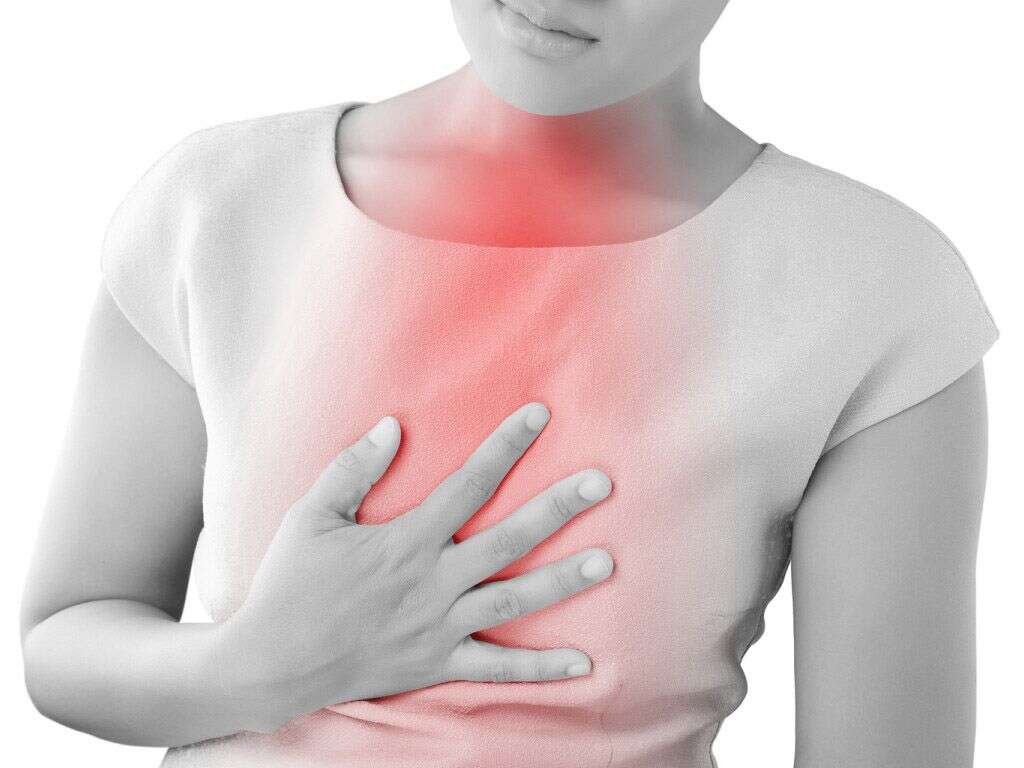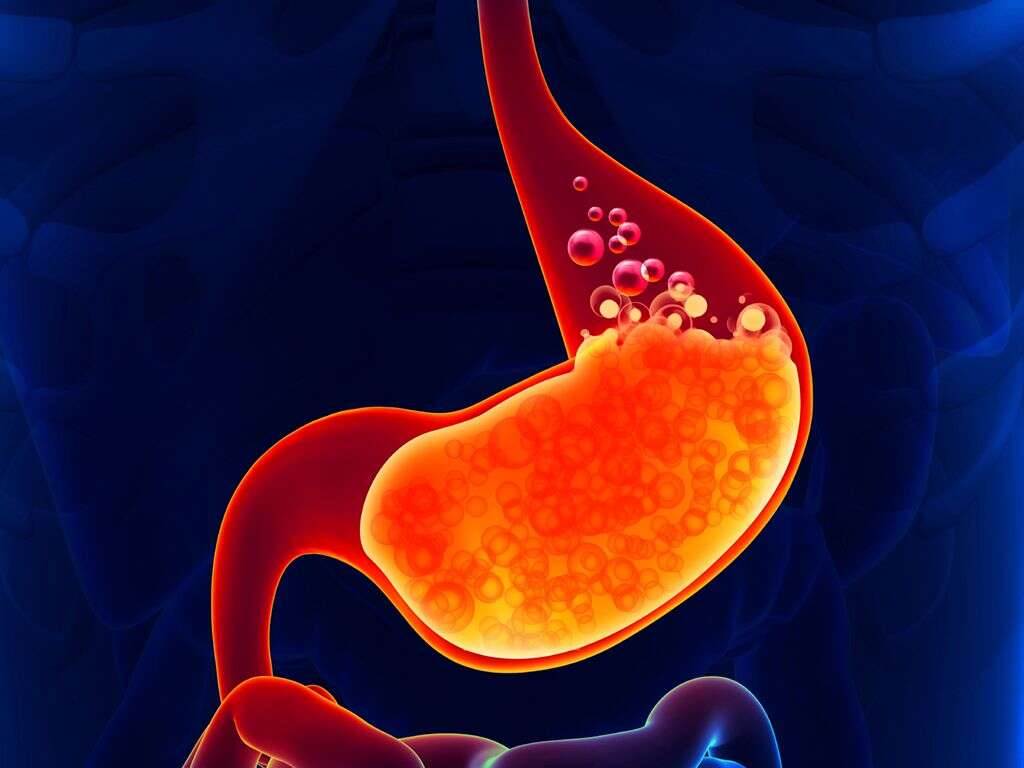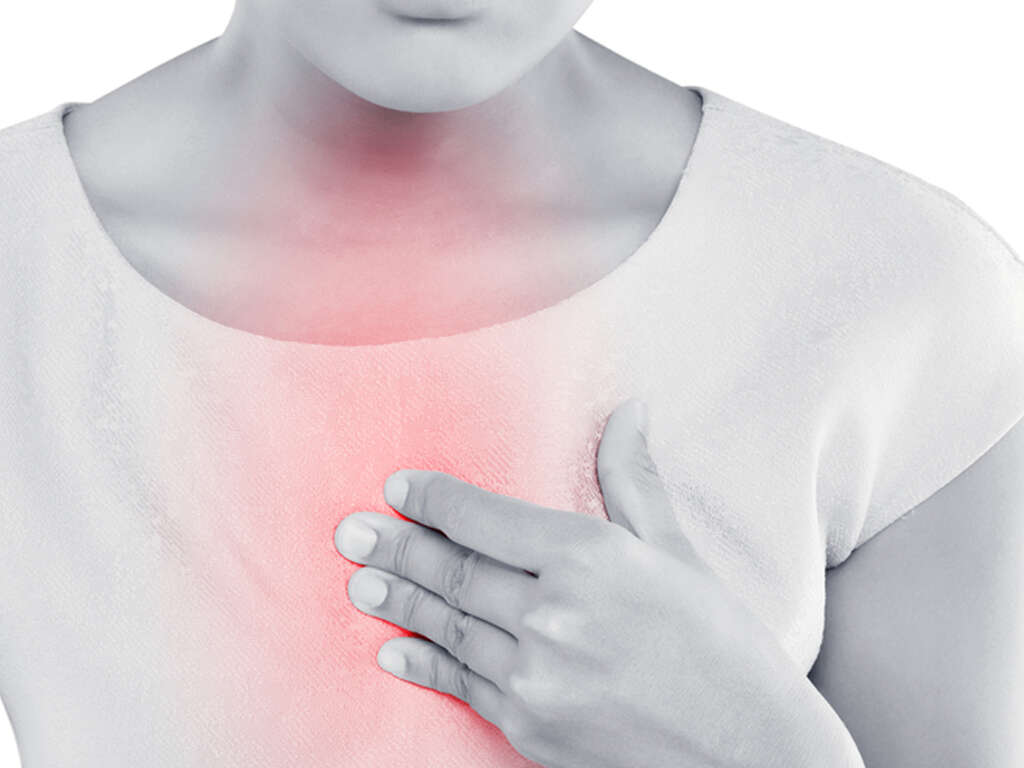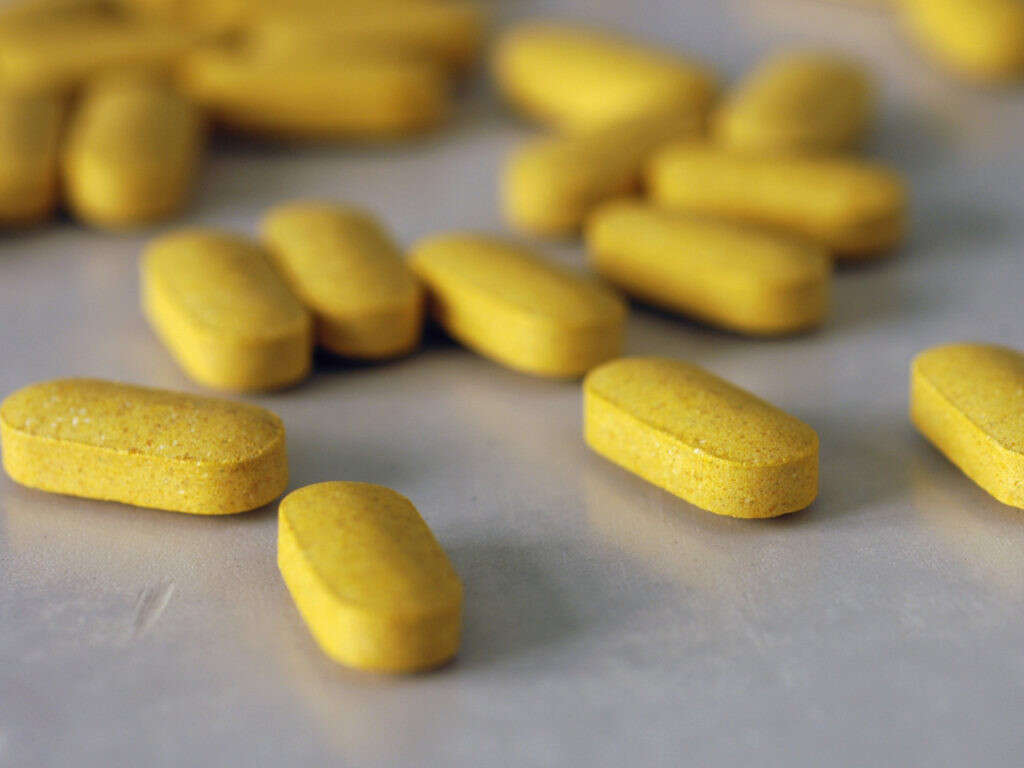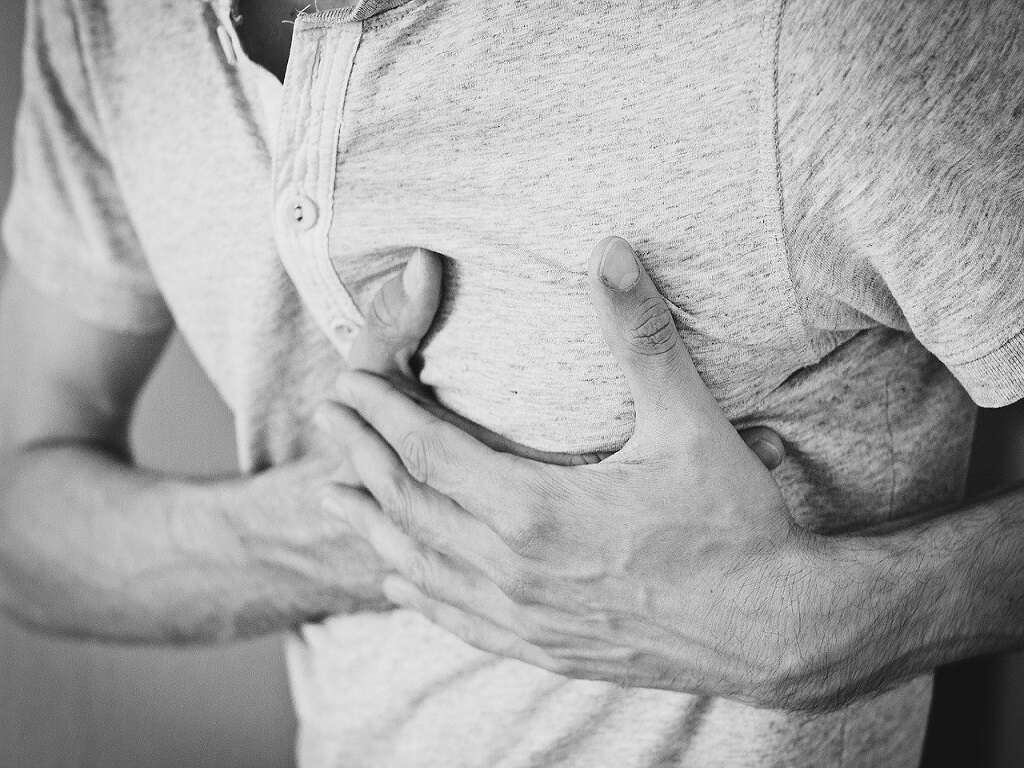10 Low Stomach Acid Symptoms
Stomach acid, also called gastric acid, is the hydrochloric acid produced in the stomach. The acid is critical for the digestion of food in the stomach to transform it from its raw form to a form that contains absorbable nutrients.
In the case of low stomach acid, also called hypochlorhydria, some food will not be digested and, therefore, substantial amounts of nutrients in the food will not be released for absorption into the body. This means that even if you eat a balanced diet, your body will miss out on the nutrients that are unavailable for absorption. This can lead to deficiencies of various nutrients including proteins, minerals, and vitamins.
Gastric acid is also necessary for the control of harmful microorganisms in the gut. Inadequate stomach acid can lead to an increase in harmful gut microorganisms, which can cause many digestive problems. Below are 10 low stomach acid symptoms.

Symptom #1: Heartburn
While many people think that heartburn is a symptom of high stomach acid, this is not always the case. Heartburn is usually a low stomach acid symptom. When you have low stomach acid, digestion does not happen as efficiently as it should. This means that after eating, the food remains in the stomach longer.
As it sits there, the food begins to ferment due to food containing various microorganisms and the stomach environment being warm. This leads to the production of various chemicals and gases within the stomach. Heartburn happens due to the irritation caused when some of the fermented materials and gases rise and get into the esophagus. Low stomach acid can also cause other digestive issues including gastritis, cramps, constipation, gas, bloating, and nausea.

Symptom #2: Belching
Belching one hour after meals is a common symptom of low stomach acid. Gastric acid triggers opening of the pyloric valve that leads to the duodenum and the small intestines. This happens once hydrochloric acid has broken down food in the stomach and changed it into an acidic mass of nutrients.
The increased acidity triggers the pyloric valve to open to let out the digested food into the duodenum for absorption of nutrients through the walls of the small intestines. In the absence of sufficient gastric acid, the food in the stomach does not become adequately acidic to trigger opening of the pyloric valve. Instead, the food starts fermenting. This produces chemicals and gases that flow back into the esophagus and cause belching.

Symptom #3: Hungry after Eating
People with low stomach acid are likely to experience hunger even after eating a large meal. This may not make sense, considering that food tends to remain in the stomach longer in such people.
However, because the body is not getting all the nutrients it requires from the food consumed, it develops deficiency of various nutrients such as protein, vitamins, and minerals.
And because your body is not getting adequate amounts of nutrients for its many functions, it continues sending hunger signals. The intention is for you to eat more food and therefore increase the chance of more nutrients getting into the bloodstream.

Symptom #4: Undigested Food in Stools
When you have low stomach acid, some of the ingested food is not digested. As a result, even when the pyloric valve opens to discharge stomach contents into the duodenum, some of the food will remain unchanged.
In the small intestines, nutrients from the digested part of food are absorbed into the bloodstream while the rest moves on to the large intestines. In the large intestines, some of the water in the half-digested food is absorbed for use in the body. The rest of the material moves to the rectum and on out through the anus as stools. This material includes the undigested food.

Symptom #5: Feeling Sleepy after Meals
Although other conditions can cause drowsiness after taking a meal, it could also be due to low stomach acid. This happens because digestion requires large amounts of energy. In the case of low stomach acid, the digestion process becomes even more demanding.
This is partly because the body is already low in some nutrients. As a result, some body systems will not be working properly. In the body’s quest to process food for onward transmission of nutrients to the various body systems, energy resources are diverted toward digestion. This leaves some systems starved of energy and is the reason why you may feel sleepy after eating.

Symptom #6: Weak, Cracking Nails
If your nails are weak and cracking, it is likely that you have deficiency of some nutrients such as protein, fatty acids, minerals, and vitamins. Your body requires these nutrients for the growth of healthy nails.
Because low stomach acid leads to poor digestion of food, the body ends up getting inadequate amounts of the nutrients contained in food. The body prioritizes use of the available nutrients. This means that the available nutrients go to the most essential functions. This leaves less essential functions, such as growth of nails, with leftover nutrients. And because these are usually inadequate, it leads to weak and cracking nails.

Symptom #7: Hair Loss
Unexplained hair loss, especially in women, could be a symptom of low gastric acid. The same factors as those that lead to weak, cracking nails may be at play. Hair is mainly composed of a protein called keratin which is processed within the root of the hairs. As more keratin is produced, the dead part forms the hair shaft that appears above the scalp. The process also requires other nutrients, including vitamins and minerals, to grow healthy and strong hair.
If your body has insufficient amounts of these nutrients, it prioritizes their use such that the scalp and the hair only get what is left over after more essential functions have received their share. This is the reason why hair may start thinning and ultimately dropping off.

Symptom #8: Foul Body Odor
Foul body odor can result from poor general hygiene. However, ruling out poor personal hygiene, foul breath or body odor, or both, may be due to low stomach acid. With low gastric acid, proper digestion of food does not happen. Additionally, microorganisms within the food and the gut have perfect conditions to proliferate unhindered. Activities of harmful bacteria and yeasts lead to the production of toxic chemicals.
While some of these chemicals leave the digestive system in fecal material, others are absorbed into the bloodstream. When this has been going on for some time, the liver and the kidneys, which are the body’s main detoxifying organs, have a hard time coping. As a consequence, some of the toxic chemicals remain in the bloodstream. When some of these toxins leave the bloodstream through sweating, they can cause foul body odor.

Symptom #9: Chronic Fatigue
Chronic fatigue is yet another symptom of low stomach acid. Chronic fatigue may be accompanied by other low stomach acid symptoms such as nausea, anemia, food allergies, candida, diarrhea, and constipation. Chronic fatigue occurs when the body does not produce all the energy it requires for its various functions.
This is what happens in the case of low stomach acid. Because complete digestion for ingested food does not happen, only a part of the nutrients contained in the food is available for absorption into the body. In such circumstances, body systems are in need of more energy and other nutrient resources than are available. This overextension of nutritional resources leads to fatigue. And as long as the cause of low gastric acid remains unaddressed, fatigue becomes a chronic condition.

Symptom #10: Anemia
While there are many causes of anemia, it could also be a low stomach acid symptom. Iron supplementation is one of the most common treatments for anemia. If, however, the condition does not respond to supplementation with iron, it is probably because the body is unable to absorb iron.
Gastric acid is necessary for the absorption of iron into the body. If only small quantities of hydrochloric acid are available in the stomach, they can only handle the digestion of small quantities of iron, besides other nutrients. The result is iron deficiency or anemia, whose symptoms include fatigue, dizziness, fast heartbeat, shortness of breath, headaches, and malaise. Supplementing with iron does not address the cause of low stomach acid and, therefore, does not lead to recovery from anemia.




